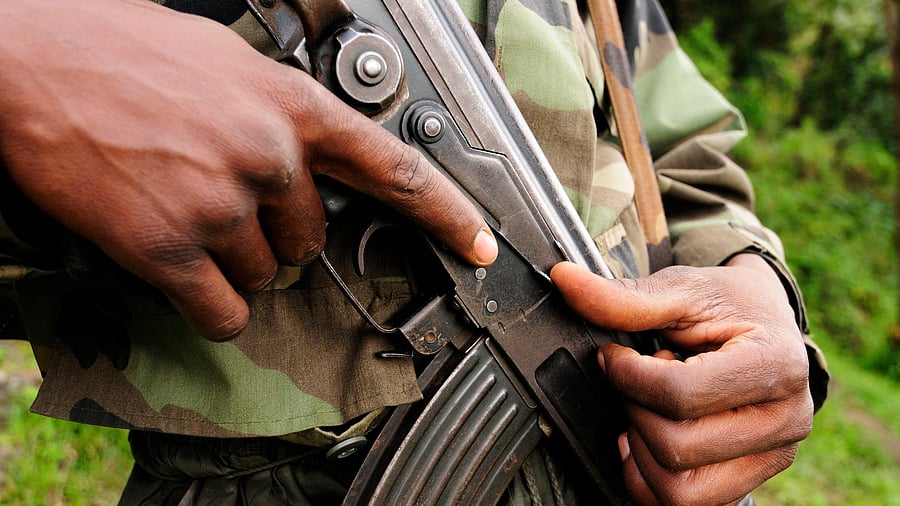
The NSCN-IM, however, has been in ceasefire since 1997 and its cadres and leaders including Muivah are lodged in their 'designated camp' at Hebron near Dimapur.
(Representative image)
Credit: iStock Photo
Guwahati: In a significant development, Naga insurgent group, NSCN-IM on Friday sought a "third party intervention" to find a "honourable political agreement" to end the old Naga conflict and threatened to resume "violent armed resistance" against the government if such a demand is rejected, breaking the 27-year-long ceasefire.
In a statement, NSCN-IM general secretary and the chief "political negotiator" Thuingaleng Muivah alleged "betrayal" of the letter and spirit of the Framework Agreement by the Centre, which was signed in 2015 between the Centre and the group.
The warning came following the Centre's repeated refusal to recognise a separate Naga flag and Naga constitution as demanded by the NSCN-IM to resolve the 77-year-old Naga conflict.
"In order to conclude and realise an honorable political agreement, we rule out peaceful means against the ignominious betrayal of the letter and spirit of the Framework Agreement of August 3, 2015 by the Government of India. However, in the first place, we propose a third-party intervention to resolve the betrayal of the letter and spirit of the Framework Agreement, but if such a political initiative is rejected by the GoI, NSCN shall resume the violent armed resistance against India for defending Nagalim unique history and her sovereign existence," Muivah said in the statement, which was emailed to DH.
Many Naga groups including the NSCN-IM claims that Nagas were never part of India and were made part of India without taking consent of the Nagas. This led the Naga groups to declare "independence" on August 14, 1947, which followed a long armed conflict between the security forces and Naga armed groups, mainly the NSCN. The NSCN-IM, however, have been in ceasefire since 1997 and its cadres and leaders including Muivah are lodged in their "designated camp" at Hebron near Dimapur. They call Muivah as Ato Kilonser (Prime Minister) and have been "celebrating Naga Independence Day" on August 14 every year. Muivah said more than 600 rounds of talks had taken place since 1997.
After years of talks, the Centre and the NSCN-IM signed the "Framework Agreement" on August 3, 2015 in New Delhi in the presence of Prime Minister Narendra Modi. The PM had called it a landmark development and claimed that the decades-old Naga insurgency was resolved with the signing of the agreement.
The Framework Agreement was to be the basis for finding a final agreement to end the country's longest armed conflict. But conflicting claims that followed over the 2015 agreement made the path to the final solution murkier.
The NSCN-IM claimed that the Centre agreed to recognise the "unique history" of the Nagas and the concept of "shared sovereignty" but officials representing the Centre rejected such claims saying the outfit misinterpreted the 2015 agreement. The NSCN-IM demanded that the Naga flag and Constitution be recognised in order to reach a respectable political solution to the conflict. But the Centre rejected such a demand.
"The violent confrontation between India and Nagalim shall be purely on account of the deliberate betrayal and breach of commitment by India and its leadership to respect and honour the letter and spirit of the Framework Agreement of August 3, 2015. Therefore, India and its leadership shall be held responsible for the catastrophic and adverse situation that will arise out of the violent armed conflict between India and Nagalim," Muivah said in the five-page statement.
Muvah said the "Nagalim's sovereign National Flag and Nagalim sovereign constitution" must be officially recognised and acknowledged if the Centre desires a "honourable political agreement."